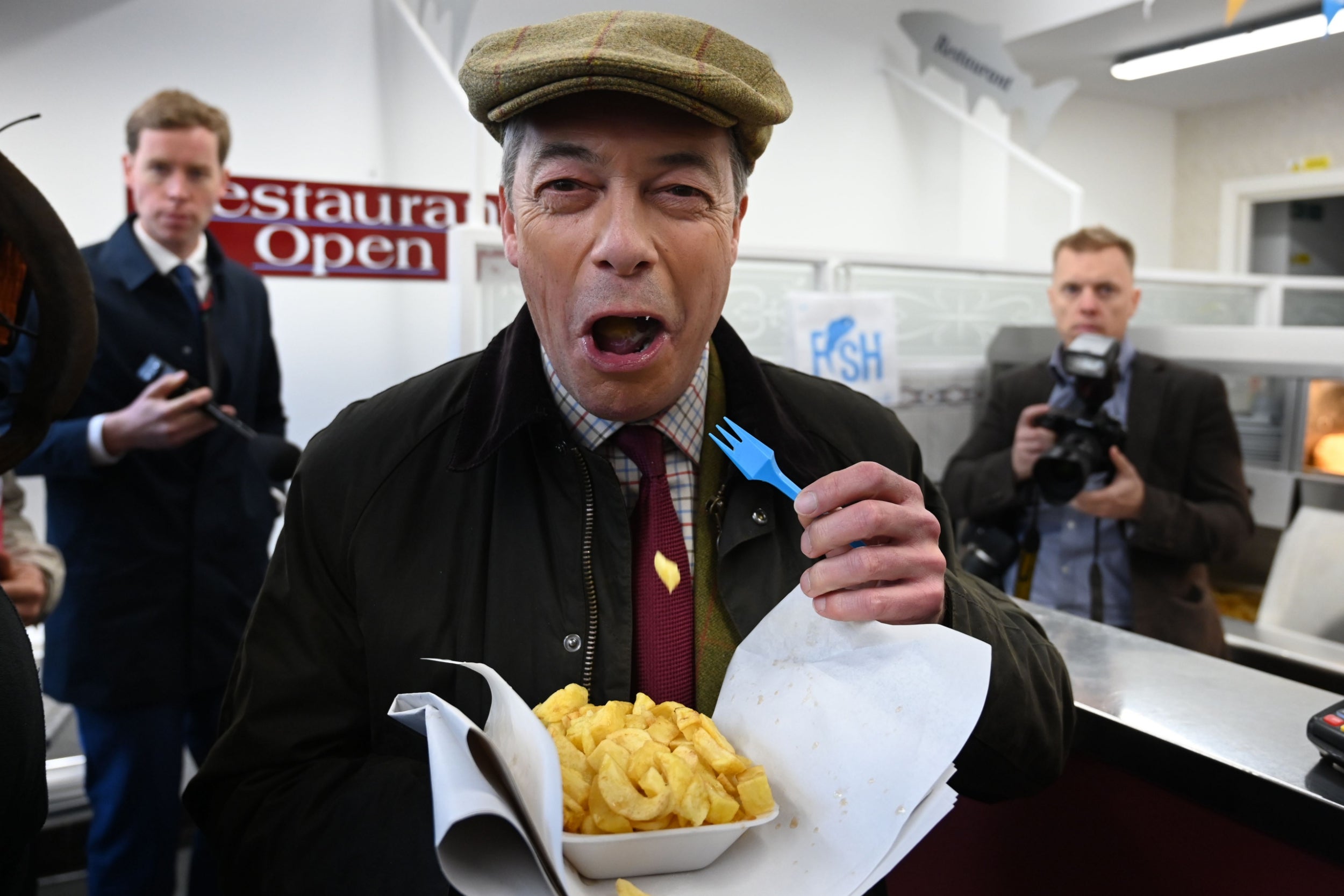General election: How Nigel Farage can still help the Tories to win Labour seats
Even without a formal pact or standing down candidates, the Brexit Party can do its best to help the Conservatives in other ways, writes Sean O'Grady


There may be rather less to Nigel Farage’s defiant determination to contest 300 seats at the next election, including crucial Labour-Conservative marginals. This is because everyone who has ever been involved in an election well understands there are degrees of campaigning.
In some wards or constituencies, where the contest is close and a party feels it has an excellent chance of snatching a seat from its opponents, resources can be poured in. Volunteer canvassers are often transferred from nearby safe seats to help with leafleting, visiting voters, holding events, and generally putting feet on the streets in the “ground war”. Party leaders and favourite personalities can show up too, to impress the locals and the media. Social media can precision-target a constituency and its swing voters. A party could, within limits, assist local activists financially with central funds. More care will be taken to tailor messages for local conditions; more bogus polls will be concocted. The residents will hardly be left alone, and the atmosphere will be intense.
Elsewhere, though, a party may effectively abandon a seat. This is usual in places where there is no hope of winning, or even saving a deposit. A “paper candidate” will be the limit of their commitment. Or where the seat is so secure there’s little chance of losing or point in making the effort just to increase the size of an already massive majority.
And this might also be true in places where there is a clear, though secret, preference for some other party to prevail. In the case of the Brexit Party in this election, it could choose to put relatively few resources where the Conservatives are hoping to take a parliamentary seat from Labour. Yes, the Farageists will put up a candidate, and claim to be on the brink of winning; but in reality they will be Potemkin campaigns. If it is feared by local Brexit Party candidates and associations that the intervention of a Brexit Party candidate might split the Leave-inclined vote, then the Brexit Party, locally or even nationally, might well chose to soft pedal its efforts in such tight Lab-Con marginals.
So while Nigel Farage says he will be putting up candidates in 300 seats in Great Britain (ie not won by the Conservatives in 2017) some of these wannabe MPs will be more active and better resourced than others.
Likewise, in seats where the Conservatives have no chance of defeating Labour, the SNP or the Liberal Democrats, they could choose not to make much effort, leaving the Brexit Party to make the most of the opportunity in, say, heavily Eurosceptic hitherto traditional Labour places. There is no need for any formal pact or “non-aggression” agreement and both parties will stand candidates as they wish, if only as a matter of pride; but in reality tacit, informal, back-channel understandings may emerge that can affect the outcome.
Such “tactical campaigning” is the counterpart to the “tactical voting” that some believe will turn out to be crucial in this election. Where both forces operate, the results can be dramatic. It certainly happened in the 1997 general election, when the New Labour landslide was aided and abetted by the Liberal Democrats, who also found Labour activists unusually somnolent in their target seats, almost entirely held by Conservatives. Tony Blair and Paddy Ashdown quietly acted together to send John Major’s Conservatives down to their worst result since 1832; but they could not have done so without a degree of canny tactical voting and, of course, the sheer collapse of Conservative support. Similar forces were at work in the 2001 contest, a virtual rerun of 1997.
Whether such tactics can have the same impact this year is a matter of some uncertainty. What might happen is that both tactical voting and tactical campaigning will be there, but rather patchily, and with the effects in some places that either side’s efforts tend to cancel the other lot’s out: Remain-inclined Labour voters switching to a Liberal Democrat could be balanced by Leave-inclined Conservatives switching to the Brexit Party. Or vice versa.
Mr Farage believes that Leave-inclined Labour voters will defect to his party rather than the Tories, for cultural, historic reasons, and help the Tories even as Remain-inclined Tories head for the Lib Dems. Others doubt that. It might happen in some places, such as ex-mining areas with strong memories of the bitter 1984-5 strike, but not in others where the Labour tradition is weaker.
There is also little for a tactical voter to go on, given that the tactical situation is unclear from the 2017 election. Since then Labour support has roughly halved, and Lib Dem support approximately doubled. It will be hard for voters to know what to do, even assuming they believe, say, that Labour is a Remain party. The tactical voting websites, on both sides, are bringing up some contradictory results. Tactical voting works only if it is strongly applied in one direction only. If Brexit becomes a less important issue, compared to, for instance, the NHS, then the phenomenon of Brexit-driven tactical voting/campaigning will also be more muted, with more voters returning to their usual loyalties, or voting tactically in a different way.
All that said, a Tory lead in the polls of 10 points or more over Labour remains, for the time being, the fundamental psephological fact in this election, and a more forceful one than either tactical voting, tactical campaigning, or both.
Join our commenting forum
Join thought-provoking conversations, follow other Independent readers and see their replies
0Comments